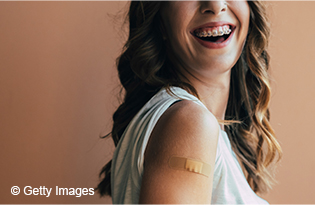How best to prevent this common cancer
2/19/2024 by Robert M. Jacobson, M.D.

Every year 34,000 adults in the U.S. get diagnosed with cancer caused by human papillomavirus, or HPV. The cancers are mainly of the cervix, head and neck. The HPV infection that often leads to these cancers can occur decades before, usually in later adolescence or young adulthood.
We can prevent these cancers. We have an amazingly effective and safe vaccine. But it has to be given long before any exposure, and it should be given when a child's immune response is the strongest.
Mayo Clinic, the American Cancer Society and the Minnesota Department of Health all recommend that children receive the first dose of the HPV vaccine at 9 years of age. When the vaccine is given this young, the child gets the best response and only needs two doses, with the second dose six months after the first.
Parents often ask:
- "Isn't this vaccine optional?"
No, it's just as routinely and universally recommended as the tetanus-diphtheria-acellular pertussis, or Tdap, and meningococcal conjugate, or MenACWY, vaccines. - "Isn't this vaccine still too new for everyone to get it?"
No, it's just as old as the Tdap and MenACWY vaccines. These were all licensed for universal use in adolescents in 2005 and 2006. - "Doesn't this vaccine have some big safety concerns?"
No, studies both before licensure and since have repeatedly shown the vaccine to be safe with no longstanding harm or injury. - "But is this really the best way to prevent these cancers? Won't chastity and fidelity prevent them?"
The infections are silent and can persist for months and years. Not all exposures are preventable. Date rape and second marriages are both common. Eighty percent of U.S. adults have had an HPV infection by age 50.
As disheartening as HPV cancers and the infections that lead up to them are, we can prevent them. We can make sure our children get the two doses of the vaccine they need when they are young — long before they are exposed and when they are most likely to respond.
Robert M. Jacobson, M.D., is the medical director of the Primary Care Immunization Program in Southeast Minnesota. He is a physician in Community Pediatric and Adolescent Medicine at Mayo Clinic in Rochester and practices in the Baldwin building.
